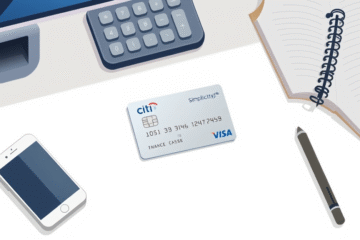Financial Planning has become an essential skill in today’s complex economic landscape.
This comprehensive guide is designed to help beginners navigate the fundamental aspects of managing their money effectively.
From understanding your relationship with money to making informed investment decisions, we will explore the key strategies and principles that form the foundation of sound financial management.
Whether you’re just starting your financial journey or looking to enhance your existing knowledge, this guide provides the tools and insights you need to build a secure financial future.
Understanding Your Relationship with Money
Our relationship with money deeply affects our financial decisions and overall financial health. Understanding this relationship helps in making informed choices and avoiding financial pitfalls. Many people are unaware of how their emotions and beliefs about money influence their spending habits. Research on the psychology of money emphasizes the role of self-awareness in managing finances effectively.
Self-awareness in financial behavior involves recognizing patterns and triggers that lead to poor money management. This understanding allows individuals to adopt healthier financial habits and make deliberate choices. Dr. Amanda Dias, a financial psychologist, states that
Self-awareness acts as a cornerstone in building a healthy financial relationship
. This emphasizes the need for introspection in personal finance management.
Moreover, identifying spending triggers and emotional responses can help curtail impulsive purchasing. This approach fosters better budgeting and saving, promoting financial stability. A well-structured financial plan incorporates insights gained from introspection, leading to more effective money management. Transitioning from reactionary to proactive financial behavior significantly enhances one’s financial health and preparedness for the future.
The Essentials of Budgeting
Understanding the essentials of budgeting involves a comprehensive approach that begins with tracking income and expenses.
Budgeting requires attention to both these elements to maintain financial stability. One effective method is to organize income and expenses in a table format.
| Category | Income | Expenses |
|---|---|---|
| Salary | $3000 | $0 |
| Rent | $0 | $1000 |
| Utilities | $0 | $300 |
By comparing these, individuals can identify patterns and necessary adjustments in spending. Tracking spending diligently helps ensure you don’t exceed income.
Furthermore, utilizing budget tracking apps can facilitate this process.
Consider using YNAB (You Need a Budget) and Mint as they offer versatile tools for tracking expenses and setting financial goals.
These apps enable users to automate tracking, which saves time and enhances accuracy. Ensuring regular updates and analysis on spending empowers individuals to make informed decisions about their finances.
Effective Saving Strategies
Effective saving strategies start with establishing an emergency fund, which acts as a financial safety net for unexpected expenses.
Emergency funds should ideally cover three to six months of living expenses, providing peace of mind during tough times.
Additionally, consider utilizing high-interest savings accounts to maximize your savings growth over time.
High-interest savings accounts offer better returns compared to regular savings accounts, making them an excellent choice for long-term savings goals.
Visit the Savings Ideas Banco CTT to explore such options.
Moreover, adopting a zero-based budgeting method ensures you allocate every dollar effectively, helping balance your earnings and expenditures.
You can read more about this budgeting approach in detail through the Zero-Based Budgeting Method from Meu Bolso em Dia.
Likewise, automate your savings by scheduling regular transfers to your savings accounts, reducing the temptation to spend impulse.
This systematic approach enforces discipline and consistency in your savings habit, significantly boosting your financial reserves over time.
Introduction to Investing
Before diving into the world of investing, beginners should familiarize themselves with various investment vehicles available in the market.
- Stocks: Investing in company shares which offer potential for high returns but come with higher risks.
- Bonds: Debt securities providing stable income with lower risk compared to stocks.
- Funds: Pooled investments offering diversification and professional management.
- Real Estate: Physical assets offering tangible returns usually through property rental or appreciation.
- Commodities: Investing in physical goods like gold or oil, offering a hedge against inflation.
Understanding the balance between risk and return is critical when choosing investments.
Recognizing the level of risk you can comfortably manage allows for better selection of appropriate investment strategies.
Beginner-friendly platforms such as Investopedia and InfoMoney provide resources to start investing safely.
These platforms offer user-friendly interfaces and educational materials to help novices understand the complexities of investing, making them ideal for gaining confidence in financial decisions. Despite the initial learning curve, taking informed steps can lead to financial growth and security. Overall, embarking on the investment journey equipped with this foundational knowledge ensures a more confident and strategic approach to building wealth over time.
Setting and Achieving Financial Goals
Setting financial goals requires using the SMART framework. These goals should be Specific, meaning clearly defined and detailed. Ensure they are Measurable, enabling you to track progress quantitatively.
Achievable goals are realistic and attainable within your current resources. They must also be Relevant, aligning with your broader financial aspirations. Lastly, make sure they are Time-bound to create a sense of urgency and motivate timely action.
Consider a case study where Jane utilized SMART goals to save for a family vacation. First, she determined a specific amount to save, then she decided how much to put aside monthly. By setting a timeframe, sticking to her plan, and adjusting finances as needed, she successfully funded the trip.
- Building an emergency fund
- Paying off debt
- Investing for retirement
- Saving for a major purchase
- Aiming for financial independence
For further guidance on financial goal setting, refer to Learn More About Setting Financial Goals.
Avoiding and Managing Debt
To effectively avoid unnecessary debt, it’s crucial to follow specific practices, ensuring financial stability. Begin by maintaining a detailed budget, tracking all expenses diligently to monitor financial health. Another vital habit is to limit the use of credit cards, reserving them for emergencies only. This helps in controlling impulse purchases that can lead to debt. Moreover, always save a portion of your income to build an emergency fund, safeguarding against unforeseen expenses. Developing financial literacy through resources like debt management tips by Concur is beneficial. Review each of these bullet points for clarity:
- Create and stick to a budget
- Use credit cards responsibly
- Build an emergency fund
- Pursue financial education actively
In managing existing debt, consider debt consolidation, which combines multiple debts into one payment. This strategy can simplify repayments and reduce interest rates if done wisely. According to recent research, debt consolidation can lower monthly payments by 30% on average, providing financial relief. It’s essential to strategize by negotiating with creditors to seek better terms or interest rates. Additionally, prioritize paying debts with the highest interest rates first, as this reduces the total amount paid over time. Engage with financial advisors who can offer personalized guidance for your debt situation. By implementing these strategies, it’s possible to take control of your financial future and reduce debt effectively.
Creating a Personalized Financial Plan
Creating a personalized financial plan requires a series of strategic steps designed to align with your unique financial goals and lifestyle. First, assess your financial situation by listing all your income sources and monthly expenses. Tools such as Minhas Economias offer useful budgeting templates.
Next, set clear financial objectives. Identify short-term goals like building an emergency fund and long-term aims such as retirement savings. Utilize Organizze financial planning guides to structure these objectives.
Then, craft a detailed budget tailored to your spending habits. Include necessary expenses, discretionary spending, and savings contributions. Online tools like Meu Bolso em Dia can help streamline this process.
Furthermore, consider establishing a savings strategy. Allocate specific amounts towards both your emergency fund and future investments regularly. The Granatum planning portal provides insights into effective savings techniques.
Additionally, focus on debt management to ensure financial stability. Implement a plan to systematically reduce debt by prioritizing higher-interest loans first. The Flash planning examples offer valuable strategies for debt reduction.
By following these steps, you can create a personalized financial plan that serves as a roadmap to achieving financial security and long-term wealth.
Your financial journey is personal; tailor each step to fit your unique circumstances.
Making Informed Financial Decisions
Conducting thorough research and analysis is crucial in making informed financial decisions. By doing so, individuals can evaluate their options, understand potential risks, and ensure their choices align with their long-term goals.
Understanding how to effectively gather and assess information allows one to make financially sound decisions.
Performing research aids in mitigating uncertainties and enhancing future stability. Consider the following key factors:
- Market trends and forecasts
- Interest rates and inflation
- Personal financial goals
- Alternatives and opportunity costs
- Potential risks and rewards
As noted by renowned economic analyst, “a comprehensive understanding of the market dynamics can elevate decision making processes significantly.” Moreover, relying on credible information is paramount; this includes expert analysis and reports from reputable financial institutions.
Relevant text: Seeking expert advice or utilizing proven financial tools is wise. As a leading financial advisor explains, “The more information you have, the sharper your decision-making process becomes.” Accordingly, utilizing reliable sources, such as the Equals Analytics Blog, empowers you to base your decisions on solid evidence rather than assumptions.
Always remember, informed decision making eliminates guesswork and can lend a substantial edge in achieving financial security.
By implementing the financial planning strategies outlined in this guide, you can take control of your financial destiny.
Remember that successful financial management is a journey that requires dedication, discipline, and continuous learning.



0 Comments